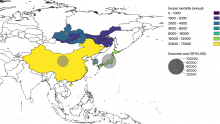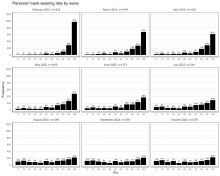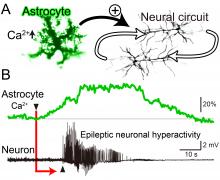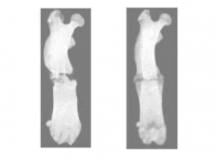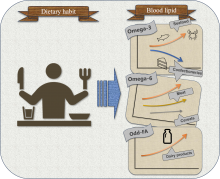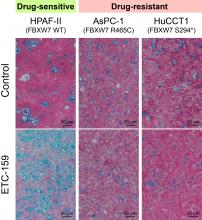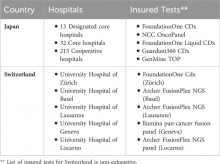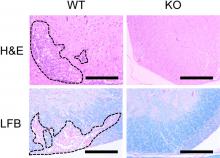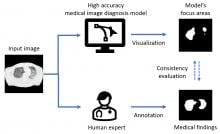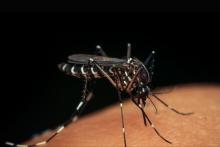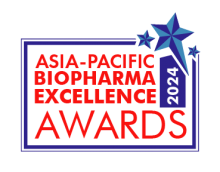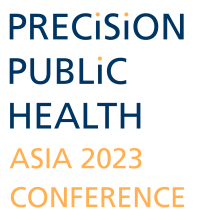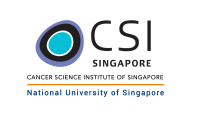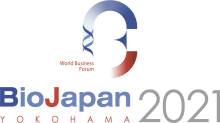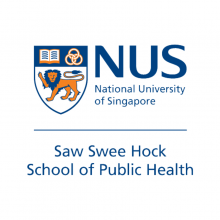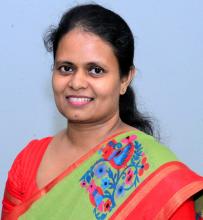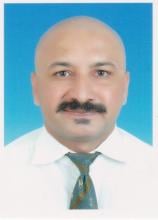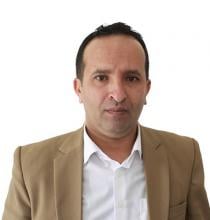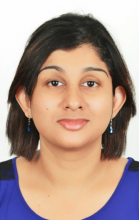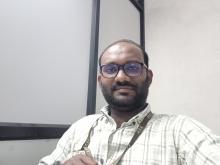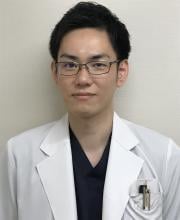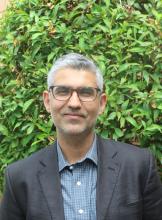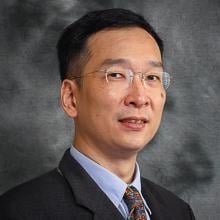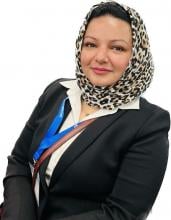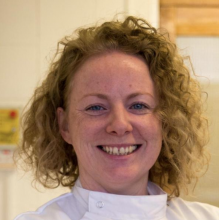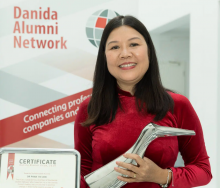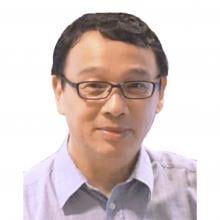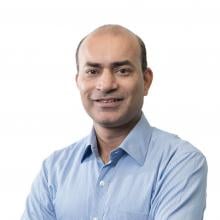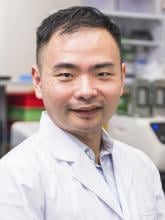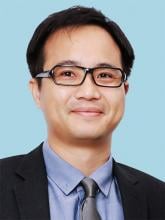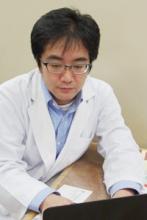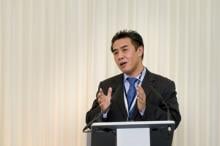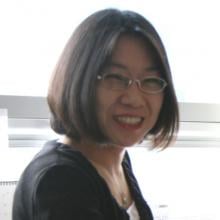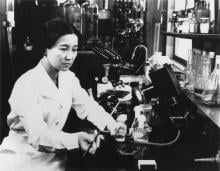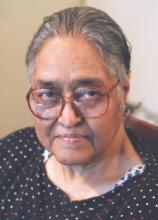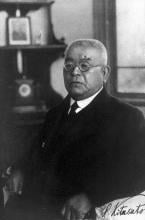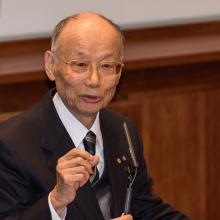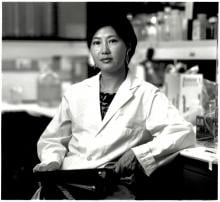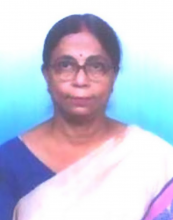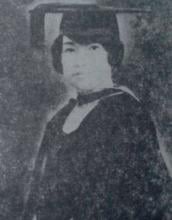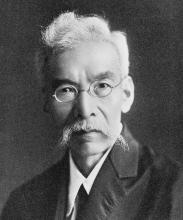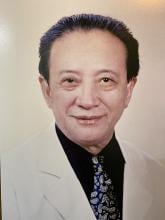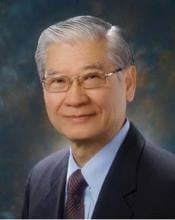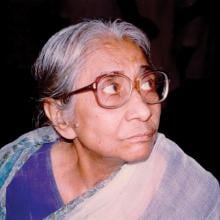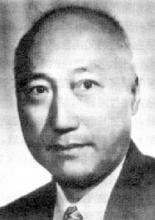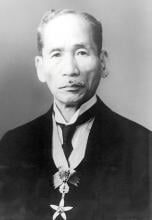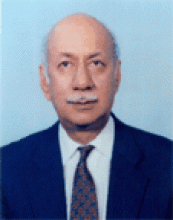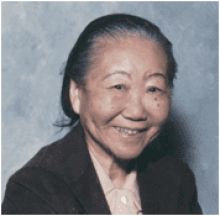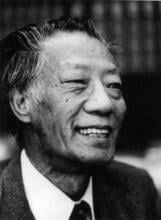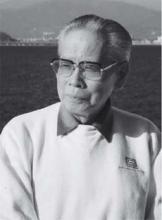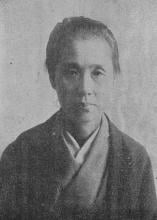Health
News
26 Apr 2024
Our brains are truly miraculous. They can process vast swathes of information with very little energy supply. One of the many ways our brain may do this is through dilation of blood vessels, which enhances energy circulation and clears wasteful materials. A research team has recently developed a method that easily observes and monitors this phenomenon.
25 Apr 2024
Academic, clinical and industry partners signed several MoUs with City University of Hong Kong at a special ceremony on 24 April to mark the establishment of the CityUHK Institute of Digital Medicine (IDM).
24 Apr 2024
As wildfires in Siberia become more common, global climate modeling estimates significant impacts on climate, air quality, health, and economies in East Asia and across the northern hemisphere.
24 Apr 2024
The enzyme PI3K plays a critical role in cell migration. Scientists have long understood this function. But researchers have recently unveiled that a subunit of this enzyme also has the ability to slam on the breaks to this process.
24 Apr 2024
Researchers from Osaka University examined how specific types of contextual changes, such as government recommendations and perceived behavior of others, influenced mask-wearing behavior during the COVID-19 pandemic. They found a complex relationship between societal norms and individual behavior during the pandemic, indicating that future strategies for public health crises interventions should consider various factors and contexts, including cultural predispositions.
22 Apr 2024
Bacteriophage therapy could be developed based on study’s results
19 Apr 2024
When epileptic patients suffer seizures, their brain is undergoing repetitive and excessive neuronal firing. But what triggers this has stumped scientists for years. Now, researchers have used fluorescence calcium sensors to track astrocytes' role in epileptic seizures, finding that that astrocyte activity starts approximately 20 seconds before the onset of epileptic neuronal hyperactivity.
16 Apr 2024
Aiming to reduce fracture recovery times, an Osaka Metropolitan University-led research group is focusing on plasma irradiation as a treatment method
15 Apr 2024
A recent study by Tohoku University researchers has shed light on the association between dairy product consumption and odd-number carbon chain fatty acids (odd-FA) within the Japanese population, a correlation previously confirmed in Europe and Oceania but understudied in Asian countries.
12 Apr 2024
Asia Research News monitors the latest research news in Asia. Some highlights that caught our attention this week are a floating platform that needs no energy, how shredding your anger can make you feel better, and an automatic lid that can help reduce bacteria in your bathroom.
11 Apr 2024
Duke-NUS study reveals why some pancreatic and colorectal tumours resist targeted anti-Wnt drugs and suggests how to overcome it, offering new hope to patients with fully treatment-resistant cancers
08 Apr 2024
Researchers from Japan’s Osaka University and Switzerland’s University of Lausanne explored the ethical considerations and current status of cancer multigene panel testing access in their countries. Despite cultural and healthcare differences, they found common national barriers: limited test availability, insufficient patient information, and variable insurance coverage. The study underscores the need for more equitable genetic medicine, suggesting improvements in test access, patient education, and insurance policies.
05 Apr 2024
Asia Research News monitors the latest research news in Asia. Some highlights that caught our attention this week are where music affects our bodies, a battery powered by the oxygen inside our bodies, and the largest bird family tree to date.
05 Apr 2024
New research could pave the way to develop cancer drugs targeting an enzyme that inhibits ferroptosis, a type of cell death. Cancer cells that are resistant to anticancer drugs are known to be vulnerable to ferroptosis. Therefore, agents that effectively induce or enhance the sensitivity of cancer cells to ferroptosis are expected to become novel anticancer agents.
03 Apr 2024
Disease-causing E. coli among species labeled electrochemically using organic metallic nanohybrids
29 Mar 2024
Asia Research News monitors the latest research news in Asia. Some highlights that caught our attention this week are spiders that join together to transform into a flower, birds giving the right of way, and a potential natural treatment for hair loss.
29 Mar 2024
The lipids in some herbal teas have been identified in detail for the first time, preparing the ground for investigating their contribution to the health benefits of the teas.
28 Mar 2024
A case study on the effects of open waste burning on air quality in Northwestern Greenland calls attention to the importance of no-one-left-behind sustainable air quality monitoring in the Arctic region.
27 Mar 2024
Researchers from Monash University and Osaka University have unveiled a groundbreaking discovery regarding the pivotal role of sensory neurons in orchestrating tissue repair and regeneration, offering significant promise for patients with poorly healing tissues and diabetes.
15 Mar 2024
Two rare skin conditions with similar symptoms can be mistaken for each other, so a scoring system has been formulated to aid physicians in distinguishing two diseases
14 Mar 2024
Ancient Mars biomolecules, Gargling away bad bacteria, Molecule glasses magnify life-chemical observations, Cholesterol and cancer link, Quantum electronics leap, Plus our updated Experts for Media: Women list & Asia Research News 2024 is here. Read all in the latest Editor's Choice.
12 Mar 2024
A new study highlights a potential therapeutic target for immune-related disorders, such as multiple sclerosis and asthma.
11 Mar 2024
Peptides are short strands of amino acids that are increasingly used therapeutically, as biomaterials and as chemical and biological probes. The capacity to isolate, manipulate and label peptides and larger proteins is limited, however, by the ability to reliably attach functional molecules, such as fluorescent compounds, to peptides in locations that won’t affect the three-dimensional structure and function of the short amino acid strand. Researchers have developed a unique chemical reaction to attach two distinct functional molecules to the N-terminus of a peptide in an efficient, robust reaction under mild conditions.
08 Mar 2024
Asia Research News monitors the latest research news in Asia. Some highlights that caught our attention this week are the mechanisms behind regrowing limbs and middle-age weight gain, and a new wound dressing combining mussels and silkworms.
05 Mar 2024
A novel method for studying genes in testicular cells of living animals could lead to breakthroughs in male contraception and fertility treatments.
28 Feb 2024
A new user-friendly tool helps researchers explore how gene activity is influenced by chemical modifications, providing insights into disease and paths to new treatments.
27 Feb 2024
Applied Microbiology International has announced it will be launching a new series of educational online content called The Microbiologist Masterclass.
27 Feb 2024
research team from Tohoku University Graduate School of Medicine undertook a detailed examination of the medical validity of deep learning models using post-mortem imaging for diagnosing drowning. The results reveal an inconsistency between the deep learning models’ results and the medical professionals’ observations.
26 Feb 2024
MozzHub, a user-friendly dengue hotspot detector, could significantly assist the management and control of dengue.
23 Feb 2024
Asia Research News monitors the latest research news in Asia. Some highlights that caught our attention this week are a biosensor to detect meat freshness, a cute and spooky sea creature, and how even shorter amounts of exercise can lead to benefits.
Events

13 May 2024
The Symposium will showcase the growing field of early cancer intervention in Asia and will serve as a vital platform for scientists and clinicians to converge and explore the latest advancements in early cancer intervention strategies, spanning from cutting-edge research to community-centric strategies.

07 Aug 2024
The MTE 2024: Advanced Healthcare and Life Sciences International Innovation Awards & Expo (AHLS IIAE) is dedicated to recognizing and celebrating groundbreaking innovations in the healthcare industry.
20 Mar 2024
The Asia-Pacific Biopharma Excellence Awards 2024 seeks to give recognition to exceptional Asian bioprocessing, logistics and supply chain management, as well as clinical trials experts, organisations and technologies over the past year. Recognising outstanding achievements of top biopharma leaders in the industry, the Asia-Pacific Biopharma Excellence Awards applauds extraordinary leaders & trend-setters of today and inspires innovators of tomorrow.

16 May 2024
Dive into the future of technology at ITEX 2024, where "Generative AI" takes centre stage, revolutionising how we approach Artificial Intelligence (AI). This groundbreaking theme shifts away from the ordinary, showcasing AI's power to create entirely new content and solutions.
06 Mar 2024
This much anticipated international gathering of industry leaders will be categorized into 2 focus themes, the first titled; “Building Sustainable Healthcare Infrastructure, Operational Strategies and Patient Centric Systems” and the second titled: “Digital Healthcare Analytics and Transformation Leadership”.
06 Nov 2023
Bringing together distinguished cancer researchers with complementary knowledge and expertise from across the globe for the exchange of ideas and information.

26 Oct 2023
The Faculty of Medicine Universiti Kebangsaan Malaysia will be organising the 15th Medical Undergraduates' Annual Scientific Research Meeting (MUASRM) on 26th October 2023.
31 Oct 2023
Experience TechInnovation 2023, held at Marina Bay Sands from October 31 to November 2. Explore themes of Sustainability, Health and Well-being, and AI in Healthcare.

11 Oct 2023
Meet your potential business partners in this Partnering Event. Asia's Largest Partnering will be held in both digitally and physically.
12 Jul 2023
Advancing Precision Public Health in Asia and Beyond – The Future is Now
09 Aug 2023
The Malaysia Technology Expo (MTE) 2023: Advanced Healthcare and Life Sciences International Innovation Awards & Expo (AHLS IIAE) is set to take place virtually on 9-11 August 2023, bringing together the best and brightest minds from the healthcare and life sciences industries.
24 Sep 2023
RehabWeek is a week-long event that brings together different conferences in the field of rehabilitation technology at the same time and place in order to foster cross-disciplinary communication and the development of relationships between different players.
21 Feb 2023
The 2nd Edition Asia Healthcare Analytics Summit by 3novex aims to bring together experts and key-players to present and discuss current trends in healthcare technology to catapult your data-driven outcomes.
07 Nov 2022
The World One Health Congress is the world’s premier conference to advance the One Health agenda, profiling and advancing transdisciplinary efforts that further our collective understanding of animal-human disease transmission alongside their social and environmental determinants.
27 Jul 2022
BIO Asia–Taiwan is Asia's largest biotech networking event, and is jointly organized by the global Biotechnology Innovation Organization (BIO) and the Taiwan Bio Industry Organization (Taiwan BIO).
20 Jun 2022
This event, held alongside the COVID-19 International Innovation Awards from 20 to 24 June, will bring forth and showcase innovations that are driving improvements and transforming the healthcare industry.
20 Jun 2022
COVID-19 International Innovation Awards (a virtual event), part of MTE 2022 year-long innovation awards programme, is scheduled to return on 20-24 June 2022. The awards are created to acknowledge and celebrate all innovations in response to COVID-19.
07 Nov 2022
FCS2022 is jointly organized by eight major research institutes in Singapore and includes a line-up of internationally renowned cancer experts. The conference converges the latest cancer discoveries around the world and promises ground-breaking and innovative insights into cancer research.
25 Jan 2022
With a brand-new focus, join us to explore Asia Healthcare Analytics Summit happening LIVE on 25 & 26 January 2022 via Hopin platform with 30+ Inspiring speakers, 100+ Virtual attendees, 4+ Networking session, 3+ Panel discussions of healthcare experts globally participating in this summit.
25 Nov 2021
Speakers from Singapore, India and Korea, invited to speak at Regional Webinar on virtual surgical planning in oral and facial surgery
11 Oct 2021
Pandemics and Policy: Protecting Health and Promoting Economic Recovery
18 Oct 2021
Now in its 14th installation, the HIMSS21 APAC Conference will converge under the theme of Future-Proof Healthcare: The Emergence of Asia Pacific.
01 Nov 2021
We invite scientists, doctors, students and other delegates engaging in scientific research related to cancer to join us at Singapore’s preferred cancer conference.
12 Oct 2021
The Asia's Largest Partnering “BioJapan” will be held both digitally and physically. Meet your potential business partners in this Partnering Event!
07 Oct 2021
The National Healthcare Group (NHG) is proud to present the 19th Edition of the Singapore Health & Biomedical Congress (SHBC).
25 Oct 2021
First in the region focused on recognizing innovations, initiatives, programmes and ideas which contribute to sustainability, eradicating poverty, improving well-being, protecting our planet, and building peace and prosperity.
07 Apr 2021
Join us from 7 to 9 April 2021 at the Precision Public Health Asia 2021 Conference to find out how precision public health can improve health outcomes and equity to deliver ‘personalised’ public health.
24 Feb 2021
INTERPHEX Week Osaka is Asia's leading exhibition for pharmaceutical industry, consists of 2 exhibitions for pharmaceutical technologies - INTERPHEX OSAKA (Manufacturing & Packaging) and PharmaLab Expo OSAKA (Pharma R&D and Drug Discovery).
21 Oct 2021
Call for Papers for 2021 conference: People, Power, Politics, Pandemics and Other Perils in Southeast Asia. The event will take place on 21-24 October 2021 at University of British Columbia (UBC), Vancouver, Canada. Deadline: Thursday 8 April 2021. Submit from the link below.
Researchers
Ts. Uganeeswary Suparmaniam, AMIChemE (UK) is a multiple award-winning young scientist, sustainability advocate, and climate activist attached to the HICoE-Centre for Biofuel and Biochemical Research, Institute of Self-Sustainable Building, PETRONAS University of Technology, Malaysia.
Dr Linny Kimly Phuong is a paediatric infectious diseases physician and researcher. She holds appointments at the Royal Children’s Hospital, Cabrini Health and the Murdoch Children’s Research Institute. Linny’s areas of research include paediatric infections, Kawasaki disease and vaccine safety.
Dr. Chong Li Choo is an accomplished academic, Associate Professor at Taylor's University, expert in food technology, and innovative product design. Award-winning researcher, director for Food Security & Nutrition Impact Lab, and impactful leader in the field.
Institute of Policy Studies of Sri Lanka
Sunimalee Madurawala is a Research Economist at the Institute of Policy Studies of Sri Lanka (IPS) with over 15 years of research experience. Her expertise lies in the areas of gender, health economics, and population studies.
Sarfraz Ahmed is working as a Scientist at Harvard Medical School's Mass General Hospital. His research interests include Diseases and Therapeutics especially focus on Cancer and Therapeutics, Cancer Immunology, Photomedicine, Photo compounds and Photodevices for Cancer, Cancer and Natural agents, Nanomedicine and Nanotechnology for Cancer, Drugs resistance, Microbiology (Bacteriology & Virology) and Drugs resistance
I am a microbiologist currently working as a lecturer in the Medical Microbiology Department, Faculty of Applied Science, Hajjah University, Yemen. I am interested in research areas related to the prevalence of infectious diseases caused by bacteria, viruses, fungi, and parasites in different areas in Yemen.
Universiti Sains Malaysia
Angeli Ambayya is a Scientific Officer (Ministry of Health, Malaysia). She is passionate about research in the field of hemato-oncology.
Dr. Irshad CV completed PhD in Economics (Specialisation: Health Economics) from the Department of Humanities and Social Sciences at the Indian Institute of Technology Madras. He completed a bachelor's and master's in Economics from the University of Calicut. His Ph.D. thesis titled “Healthy Ageing in India: A Mixed Methods Approach” explored various research questions on healthy ageing in India using both quantitative and qualitative tools. His thesis work proposed the first multi- dimensional Healthy Ageing Index (HAI) for the health status measurement of older adults in India. Two of the core works of his thesis was published in the Journal of Population Ageing, an official journal of the Oxford Institute of Population Ageing, University of Oxford by Springer. His extended thesis work was also presented at a conference conducted by the Asian Development Bank, Manila, with full funding support from the Government of Japan. Besides his Ph.D. thesis work, he has been extensively collaborating with researchers in the area of Gerontology, and published works in reputed journals. In 2021, he received a research grant from the United Nations Population Fund (UNFPA) and International Institute for Population Sciences, Mumbai, to study social frailty status among older adults in India.
Prof. Ryo Katsumata specialized in clinical research within gastroenterology, particularly in neurogastroenterology. His focus revolves around understanding the brain-gut interaction and the pathophysiology of disorders like functional dyspepsia (FD) and irritable bowel syndrome (IBS) that involve the gut-brain connection.
The Chinese University of Hong Kong (CUHK)
Epidemiologist working with health of marginalized groups, including migrants, informal houses residents, homeless and women caregivers.
Duke-NUS Medical School
Physician-researcher; Primary area of research: Ageing, at the individual and the population level; Geographical focus: Singapore, with some work in other Asian countries.
Institute for the Advanced Study of Human Biology (ASHBi), Kyoto University
Dr Ashfaq Ahmad Shah 'اشفاک ' born on 6 June 1992, from south Kashmir, Doderkoot ددیرکوٹ Kulgam, Jammu and Kashmir, India is the infection immunity doctoral researcher at the Graphic Era (Deemed to be University), Dehradun, UK, India. Dr Shah is pursuing novel dimensions of infection immunity pertaining to the correlation and impact of phyto-immune components termed phytoalexins and phytoanticipins on the benign immune system of human beings. This parameter of immunology is termed phytoalexin-immunomodulation scrutiny. His area of interest lies in Preclinical and clinical studies, i.e. vaccine adjuvant development, development of anti-inflammatory and antimicrobial compounds, evaluation of antibiotic resistance, study of Immuno-modulatory activities, disease model studies, protease isolation against specific protein antigens, and the discipline of Kalology including tyrosinase inhibition, PPO inhibition, skin whitening agents, kerato-peeling etc. Dr Ashfaq is a Doctoral Researcher, Reviewer and Editorial member of several journals and books. He is having several publications in journals of national and international repute. So far he has published more than thirty scopus infection/immunology/pharmacology scientific papers, including Fifteen international book chapters and two international books. Mr Shah received the Young scientist award in August 2023 for his groundbreaking academic performance in the field of infection immunity. Mr Shah has also been an editor of Wikipedia pages in medical science since 2015 with more than 1000 edits in medical topics available to medical literature worldwide.
Universiti Malaysia Sarawak
Dr. Cheng-Siang Tan is an Associate Professor at the Faculty of Medicine and Health Sciences, Universiti Malaysia Sarawak (UNIMAS). He is an expert in infectious and emerging diseases and biosafety and biorisk management.
Ilham Akhsanu Ridlo is an early-career researcher and assistant professor at Indonesia's Faculty of Public Health, Universitas Airlangga. He is a Ph.D. student at Institut für Kommunikationswissenschaft und Medienforschung (IfKW), Ludwig-Maximilians-Universität München. Ilham believes science communication is crucial in bridging the gap between research practice and health policy implementation. His research area concerns how scientists and journalists influence decision-makers to understand scientific uncertainty in public health.
Dr. Hira Khalid is serving as Associate Professor at Forman Christian College University, Lahore, Pakistan. She is also a US Fulbright Fellow and a member of several prestigious scientific organizations, including the American Chemical Society (ACS), the Royal Society of Chemistry (RSC), the International Union of Pure and Applied Chemistry (IUPAC), the Organization for Women in Science for the Developing World (OWSD), and the Chemical Society of Pakistan (CSP).
Dr. Crumlish has researched aquatic microbial diseases, specifically ones that have economic impact in global aquaculture, and potential solutions to such infectious diseases. Her current project seeks to develop vaccines against antimicrobial resistance in aquaculture.
The Agency for Science, Technology and Research (A*STAR)
Dr. Tay has researched antibodies and diseases like malaria and SARS-CoV-2 at A*STAR. His focus is on discovering methods for developing antibodies that can be used in therapies against multidrug-resistant pathogens.
Dr. Van was previously the Director of the Research Institute for Aquaculture No.1 (RIA1) under Vietnam’s Ministry of Agriculture and Rural Development. She has extensive expertise in aquatic animal health and aquaculture safety management.
City University of Hong Kong (CityU)
Professor St-Hilaire is associate head and professor at the Department of Infectious Diseases and Public Health, City University of Hong Kong (CityU). She has extensively researched fish nutrition and diseases, including treatment efficacy, and has helped investigate fish disease outbreaks.
The Agency for Science, Technology and Research (A*STAR)
Dr. Oehlers leads the Bacterial Pathogenesis Laboratory at A*STAR ID Labs, where he and his colleagues focus on identifying molecular bases of mycobacterial disease and, thus, deploy therapies that address antibiotic resistance in mycobacterial infections.
The Agency for Science, Technology and Research (A*STAR)
Dr. Yue Wang is senior principal investigator at the Antifungal Resistance Laboratory of A*STAR ID Labs, where his body of work focuses on virulence mechanisms of the fungal human pathogen Candida albicans.
The Agency for Science, Technology and Research (A*STAR)
Dr. Singhal serves as senior principal investigator at the Bacterial Immunopathology Lab at A*STAR ID Labs in Singapore. His work at A*STAR ID Labs revolves around three main pathogens: Mycobacterium tuberculosis, Gram-negative bacteria and Dengue virus.
The Agency for Science, Technology and Research (A*STAR)
Dr. Bifani is a principal investigator at A*STAR ID Labs at their Antimicrobial Resistance Lab. He has extensively researched antimicrobial resistance in tuberculosis and malaria. He is also an associate professor and research director at the Yong Yoo Lin School of Medicine, National University of Singapore.
City University of Hong Kong (CityU)
Dr. Yan is an assistant professor at the Department of Biomedical Sciences, City University of Hong Kong (CityU). His current research focuses on developing genomic tools to dissect lncRNA function and mechanism in diseases and to identify genetic variations that contribute to disease pathogenesis.
City University of Hong Kong (CityU)
Dr. Deng is a biomedical scientist with a special interest in bacterial virulence, including gene regulation, signaling pathways, and RNA epigenetics. He has worked on virulence regulation in pathogens to discover new therapies against bacterial infections.
Osaka Metropolitan University
Dr. Ozawa is a Specially Appointed Professor at the Department of Dermatology, Graduate School of Medicine, Osaka Metropolitan University (formerly Osaka City University). His specialized field is skin malignant tumor and surgery.
Kyoto University
Dr. So Iwata is a Professor at the Graduate School of Medicine Kyoto University and the Group Director of the SACLA Science Research Group, RIKEN SPring-8 Center. He has investigated how specialized membrane channels remove antimicrobial drugs from inside bacterial cells.
Ulsan National Institute of Science and Technology (UNIST)
Dr. Mitchell is a professor at the Department of Biological Sciences, Ulsan National Institute of Science and Technology (UNIST). His primary research interest is the study of bacterial strains that attack and prey on other bacteria, including antimicrobial-resistant pathogens.
Dr. Soojin Jang heads the Antibacterial Resistance Research Laboratory at Institut Pasteur Korea, where her team focuses on discovering new antibacterial agents for “superbugs” or bacteria resistant to most antibiotics.
Dr Kanimolli Arasu is a lecturer and a dietitian at the International Medical University, Malaysia.
Giants in history
Chinese biochemist Chi Che Wang (1894 - 1979), one of the first Chinese women to study abroad, advanced to prominent research positions at American institutions including the University of Chicago and the Northwestern University Medical School.
Ruby Sakae Hirose (1904 – 1960) was a Japanese-American scientist whose research contributed significantly to our understanding of blood clotting, allergies and cancer.
Flora Zaibun Majid ( 1939–2018) was an accomplished Bangladeshi researcher in botany and nutrition science and the first female chairperson of the Bangladesh Council of Scientific and Industrial Research.
Iranian physician and bacteriologist Azar Andami (8 December 1926 – 19 August 1984) developed a cholera vaccine to combat an outbreak that swept through the Middle East, India, Southeast Asia, and Africa in 1937.
Irene Ayako Uchida’s (8 April 1917 – 30 July 2013) strides to understand genetic diseases such as Down syndrome paved the way for early screening of chromosomal abnormalities in foetuses.
Baron Kitasato Shibasaburo (29 January 1856 – 13 June 1931) was a Japanese physician and bacteriologist whose work led to a new understanding of preventing and treating tetanus, diphtheria and anthrax.
Maggie Lim (5 January 1913 – November 1995) was a Singaporean physician who promoted family planning and expanded the access to clinics to improve the quality of life for mothers and children in Singapore’s early days.
By isolating soil microorganisms and studying the compounds they produce, Satoshi Omura (born 1935) discovered almost 500 organic compounds with unique properties that were produced by these microorganisms, including many new antibiotics.
The founder of the Adyar Cancer Institute in India, Muthulakshmi Reddy (30 July 1886 – 22 July 1968), fought to uplift women and girls from impoverished situations.
Chinese-American virologist and molecular biologist Flossie Wong-Staal (27 August 1946 – 8 July 2020) was the first scientist to clone HIV and determine the function of its genes.
Maharani Chakravorty (1937 – 2015) was one of India’s earliest molecular biologists whose research paved the way for advances in the treatment of bacterial and viral infections.
Archana Sharma (16 February 1932 - 14 January 2008) conducted research into plant and human genetics that expanded the understanding of both botany and human health. In relation to botany, she uncovered the means by which asexually-reproducing plants evolve into new species.
The first Thai woman to receive a degree in medicine, Margaret Lin Xavier (29 May 1898 – 6 December 1932), is best remembered for her compassion towards her less privileged patients.
In 1915, pathologist Katsusaburo Yamagiwa and his research assistant Koichi Ichikawa became the first to prove that chronic exposure to chemicals can cause cancer.
Filipino chemist and pharmacist Manuel A. Zamora (29 March 1870 – 9 July 1929) is best remembered for his discovery of the tiki-tiki formula to combat beriberi, a disease caused by Vitamin B1 deficiency.
After witnessing death and suffering as a youth in his home village during World War II, Nguyễn Tài Thu (6 April 1931 – 14 February 2021) set his sights on alleviating pain by becoming a doctor. After studying Traditional Chinese Medicine in China in the 1950s, Thu returned to Vietnam to serve in military hospitals. Eventually, he became the country’s foremost practitioner of acupuncture, a technique he first learned by inserting needles into himself.
David T. Wong (born 1936) is a Hong Kong-born American neuroscientist who is best known for discovering the antidepressant drug fluoxetine, better known as Prozac.
Indian organic chemist Asima Chatterjee (1917 to 2006) studied the medicinal properties of plant products, especially compounds known as vinca alkaloids.
Hsien Wu (24 November 1893 – 8 August 1959) is widely regarded as the founder of biochemistry and nutrition science in China. He was the first to propose that protein denaturation was caused by the unfolding of the protein, instead of chemical alteration.
Umetaro Suzuki (7 April 1874 – 20 September 1943) was a Japanese scientist best remembered for his research on beriberi, a disease caused by vitamin B1 deficiency, characterized by limb stiffness, paralysis and pain.
Syed Qasim Mehdi (13 February 1941 – 28 September 2016) was a Pakistani molecular biologist who was a founding member of the Human Genome Diversity Project (HGDP), which assessed human diversity by studying human migration, mutation rates, relationships between different populations, genes involved in height and selective pressure.
Tsai-Fan Yu (1911 – 2 March 2007) was a Chinese-American physician and researcher who was the first female full professor at Mount Sinai School of Medicine. She discovered that gout, a condition characterized by the painful inflammation of joints, was caused by elevated levels of uric acid in the bloodstream.
Min Chueh Chang (10 October 1908 – 5 June 1991) was a Chinese-American biologist who studied fertilization in mammalian reproduction.
A Japanese surgeon, Tetsuzo Akutsu (20 August 1922 – 9 August 2007) built the first artificial heart capable of keeping an animal alive.
Ogino Ginko (3 March 1851 – 23 June 1913) was the first registered female doctor to practise modern medicine in Japan.




